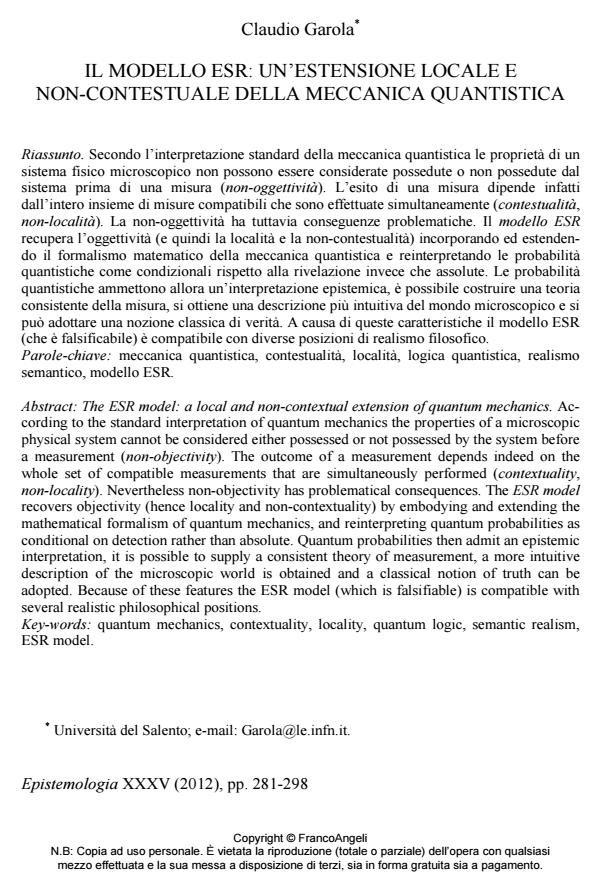The ESR model: a local and non-contextual extension of quantum mechanics.
Journal title EPISTEMOLOGIA
Author/s Claudio Garola
Publishing Year 2012 Issue 2012/2
Language Italian Pages 18 P. 281-298 File size 632 KB
DOI 10.3280/EPIS2012-002008
DOI is like a bar code for intellectual property: to have more infomation
click here
Below, you can see the article first page
If you want to buy this article in PDF format, you can do it, following the instructions to buy download credits

FrancoAngeli is member of Publishers International Linking Association, Inc (PILA), a not-for-profit association which run the CrossRef service enabling links to and from online scholarly content.
According to the standard interpretation of quantum mechanics the properties of a microscopic physical system cannot be considered either possessed or not possessed by the system before a measurement (non-objectivity). The outcome of a measurement depends indeed on the whole set of compatible measurements that are simultaneously performed (contextuality, non-locality). Nevertheless non-objectivity has problematical consequences. The ESR model recovers objectivity (hence locality and non-contextuality) by embodying and extending the mathematical formalism of quantum mechanics, and reinterpreting quantum probabilities as conditional on detection rather than absolute. Quantum probabilities then admit an epistemic interpretation, it is possible to supply a consistent theory of measurement, a more intuitive description of the microscopic world is obtained and a classical notion of truth can be adopted. Because of these features the ESR model (which is falsifiable) is compatible with several realistic philosophical positions.
Keywords: Quantum mechanics, contextuality, locality, quantum logic, semantic realism, ESR model.
Claudio Garola, Il modello ESR: un’estensione locale e non-contestuale della meccanica quantistica in "EPISTEMOLOGIA" 2/2012, pp 281-298, DOI: 10.3280/EPIS2012-002008